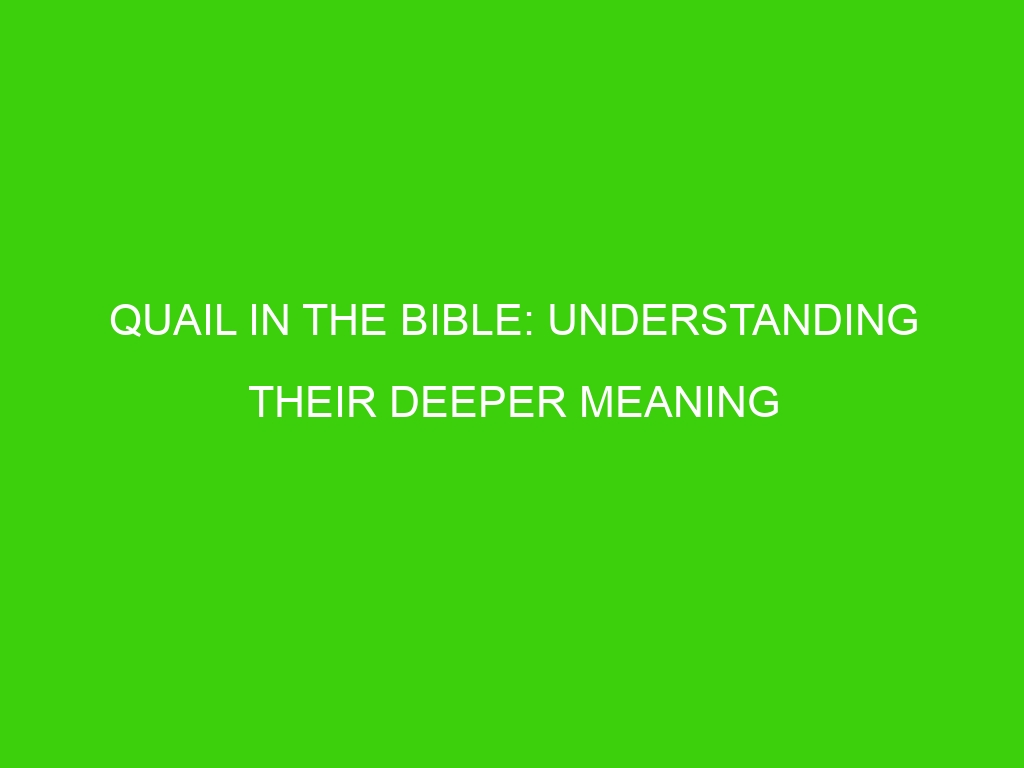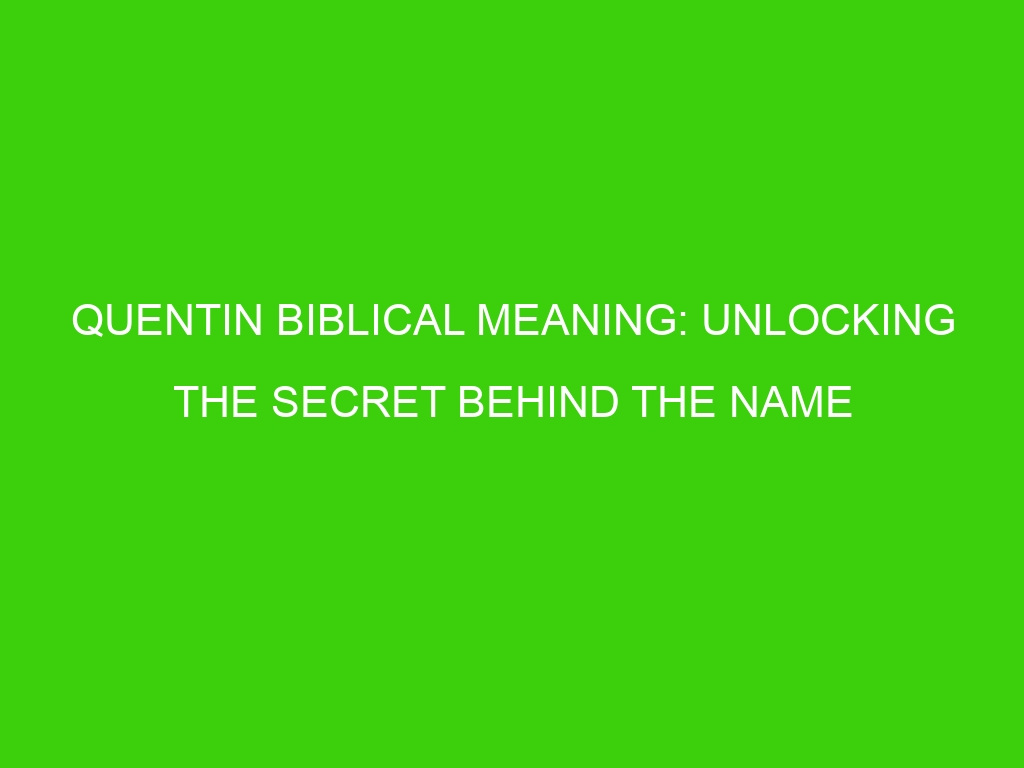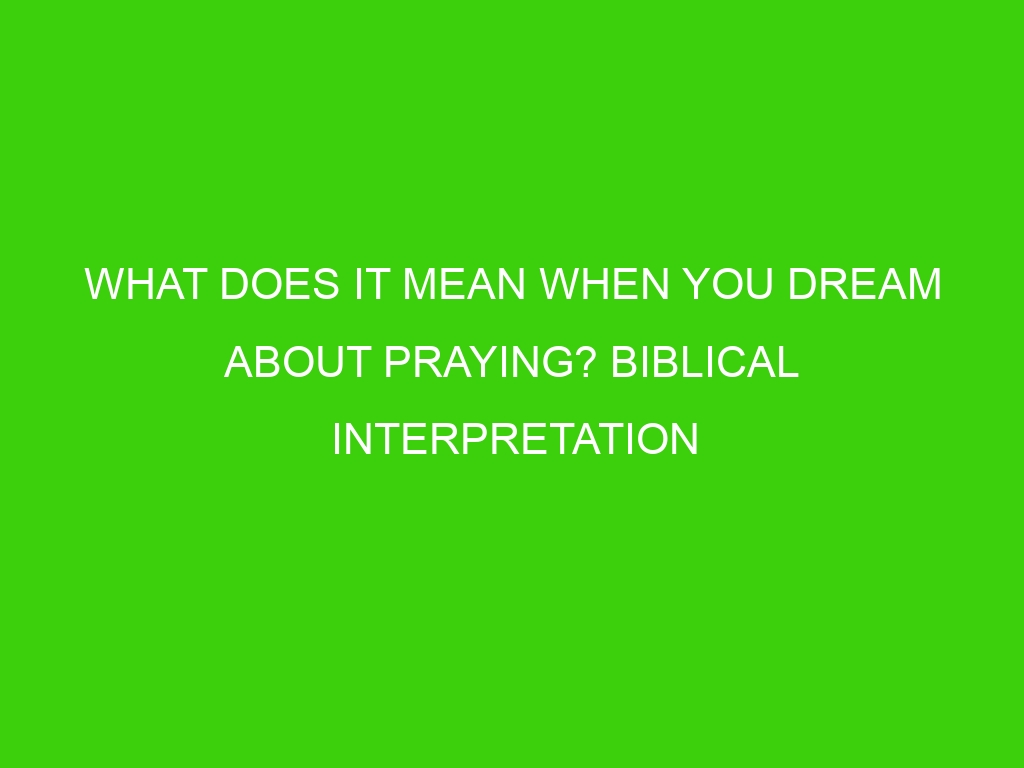You’re flipping through your Bible when you come across a random mention of quail.
Quail? Why are these little game birds popping up in Scripture? This feathered friend has a deeper meaning than you may realize.
In just a few verses, quail reveals some profound truths about God’s provision and human nature.
Get ready to see this humble hunk of poultry in a whole new light.
This quick study will uncover the significance behind those biblical quail sightings and what they can teach us today.
You’ll discover these small birds made a big spiritual impact in their brief cameo in the life of God’s people.
Quail in the Old Testament: God’s Provision in the Wilderness
The Israelites had been wandering in the desert for a long time, and they were getting hungry.
They complained to Moses and Aaron, wishing they were back in Egypt where at least they had food to eat.
God’s Promise of Meat God told Moses he would rain down bread from heaven so the people would have food to eat.
God also promised to provide meat for them in the evening and as much as they wanted.
Moses told the people God’s promise, but some doubted, asking “Can God spread a table in the wilderness?”
Quail Descend on the Camp That evening, quail came and covered the camp.
There were so many birds that people were able to gather them up easily.
The quail was about two cubits deep all around the camp – that’s over 3 feet high! The people stayed up all night gathering and preparing the quail.
Greed and Regret The next day, while the meat was still between their teeth, God struck the people with a severe plague.
The place was named Kibroth Hattaavah, meaning “graves of craving,” because the people’s greed caused their demise.
The story of the quail shows us God’s provision and care for his people.
Even when they doubted him, God gave the Israelites what they longed for.
Their greed for taking more than they needed to be led to death, reminding us to be content with God’s provision and not crave excess.
Though the people perished, God remained faithful to sustain the Israelites in the wilderness.
Quail Symbolism: Exploring Spiritual Meanings and Significance
Provision and Abundance
In the Bible, quail symbolizes God’s provision and abundance.
When the Israelites were wandering in the desert, God provided quail for them to eat.
Quail appeared in the camp in the evenings, and the people were able to catch and cook them.
This showed God’s care in providing food for the Israelites during their journey.
Answer to Prayer
The quail was also a direct answer to the Israelites’ prayers for meat to eat.
They grew tired of the manna God provided and longed for meat.
God answered their prayers by bringing the quail into the camp.
This illustrates how God listens to our prayers and provides for our needs.
Lack of Trust
However, the quail also represented the Israelites’ lack of trust in God.
Although God had provided manna, the Israelites grew dissatisfied and demanded meat.
They failed to trust that God would continue providing for them.
When the quail appeared, many people gorged themselves, which showed their lack of self-control and moderation.
This greed and gluttony was a sin against God, who had given the quail as a gift.
Lessons for Today
The story of the quail contains important lessons for us today.
It shows us that God cares for our needs and answers our prayers.
However, it also warns us against greed, lack of trust, and lack of self-control.
When God blesses us, we should accept His gifts with gratitude, moderation, and humility.
We must continue to trust in His daily provision rather than demanding more and more.
When we do so, we find that He gives us an abundance of blessings.
Quail as Sacrifice: Usage in Temple Rituals and Offerings
Quail played an important role in ancient Israelite temple rituals and sacrifices.
According to Leviticus 1, quail could be used as a “burnt offering” to God, demonstrating devotion and seeking atonement.
The priest would sacrifice the quail on the altar, burn it completely, and the smoke would rise to heaven.
Burnt offerings of quail and other animals were a common part of daily temple activity.
On special holy days and festivals, the number of sacrifices would increase dramatically.
For example, on the Day of Atonement, the High Priest would sacrifice one bull, one ram, and seven lambs as burnt offerings to purify the temple.
Additional burnt offerings of quail and turtledoves from community members would be sacrificed as well.
The quail’s role in ritual purification and atonement highlights its symbolic importance.
The complete burning of the quail, like other animal sacrifices, represented the devotion and submission of the worshipper to God.
The smoke ascending to heaven illustrated the connection between God and the worshipper, with sins being carried away and forgiveness granted.
While quail and other birds were less expensive than larger livestock, they were still a meaningful sacrifice, especially for the poor.
God instructed the Israelites that even if someone could not afford an animal, grain or turtledoves could be an acceptable substitute.
So the quail allowed all members of society, regardless of economic status, to participate fully in temple rituals.
The practice of animal sacrifice was an integral part of Israelite religious observance for centuries.
Although no longer practiced today, these sacrifices, including the burnt offerings of quail, were a profound way for ancient Israelites to honor God, purify themselves and their community, and make atonement for sins.
The quail truly was a bird of great spiritual significance.
Jesus and Quail: New Testament References and Context
The quail is mentioned a few times in the New Testament, often about God’s provision.
In the Gospels, Jesus himself references quail in two notable passages.
Feeding the Five Thousand
In Matthew 14, Mark 6, and Luke 9, Jesus feeds a crowd of 5,000 people with just five loaves of bread and two fish.
After everyone had eaten their fill, the disciples collected 12 baskets of leftovers.
Jesus uses this miracle to illustrate God’s abundant provision.
Some scholars believe the fish in this story may have been quail, a common source of food at the time.
Regardless of the type of fish, Jesus’ point remains: God can provide more than enough for our needs when we offer what little we have.
Do Not Worry
In Luke 12, Jesus tells his followers not to worry about what they will eat or wear.
He says:
“Consider the ravens: They do not sow or reap, they have no storeroom or barn; yet God feeds them.
And how much more valuable you are than birds! Consider the lilies: They do not spin or weave, yet not even Solomon in all his splendor was dressed like one of these.
Do not worry about your life, what you will eat; or about your body, what you will wear.” (Luke 12:24, 27, 22)
Here Jesus points to quail and lilies as examples of how God provides for his creation.
If God cares for these birds and flowers, how much more will he care for his children? We can trust that God will supply all our needs, so we do not need to worry.
Jesus’ references to quail, whether literal or symbolic, highlight some important truths.
God is our faithful provider.
He cares for even the smallest details of our lives.
And when we feel we have little to offer, God can use it for great purposes to demonstrate His abundant grace.
Applying Biblical Quail Symbolism: Lessons for Today
The quail in the Bible symbolizes God’s provision and care for His people.
Even when the Israelites grew impatient and complained in the wilderness, God still provided sustenance to meet their needs.
God Provides in Times of Impatience
The Israelites grew impatient with God and Moses while wandering in the desert and began to complain about the lack of food.
God responded by sending a vast number of quail into the camp to feed them.
When you feel impatient with God’s timing or provision in your own life, remember the biblical quail.
God has not forgotten you, even when you are faithless.
He still seeks to meet your needs in His perfect timing.
Appreciate the Gifts You Are Given
The Israelites were given an abundance of quail, yet they failed to appreciate the gift.
They grew greedy and overindulged.
We must be careful not to take God’s gifts and blessings for granted in our lives today.
Whatever He provides, whether small or large, we should receive with gratitude and thanksgiving.
Appreciate each gift as a sign of His faithfulness and care.
Seek Moderation in All Things
When the Israelites overrated the quail, God struck them with a plague.
This illustrates the importance of moderation and self-control, even in times of abundance.
Although God gave the quail generously, He expected the people to partake responsibly.
We too must exercise wisdom and moderation in how we enjoy God’s gifts to us.
Overindulgence can lead to pain, sickness, and even death.
Receive God’s blessings with gratitude and enjoy them in healthy moderation.
The quail in the Bible provides us with spiritual lessons for life today.
God is faithful to provide for us, so we must patiently trust in His timing.
We should appreciate every gift as a sign of His care and avoid overindulging in His blessings.
By applying these principles, we can gain a deeper understanding of God’s love and faithfulness.



